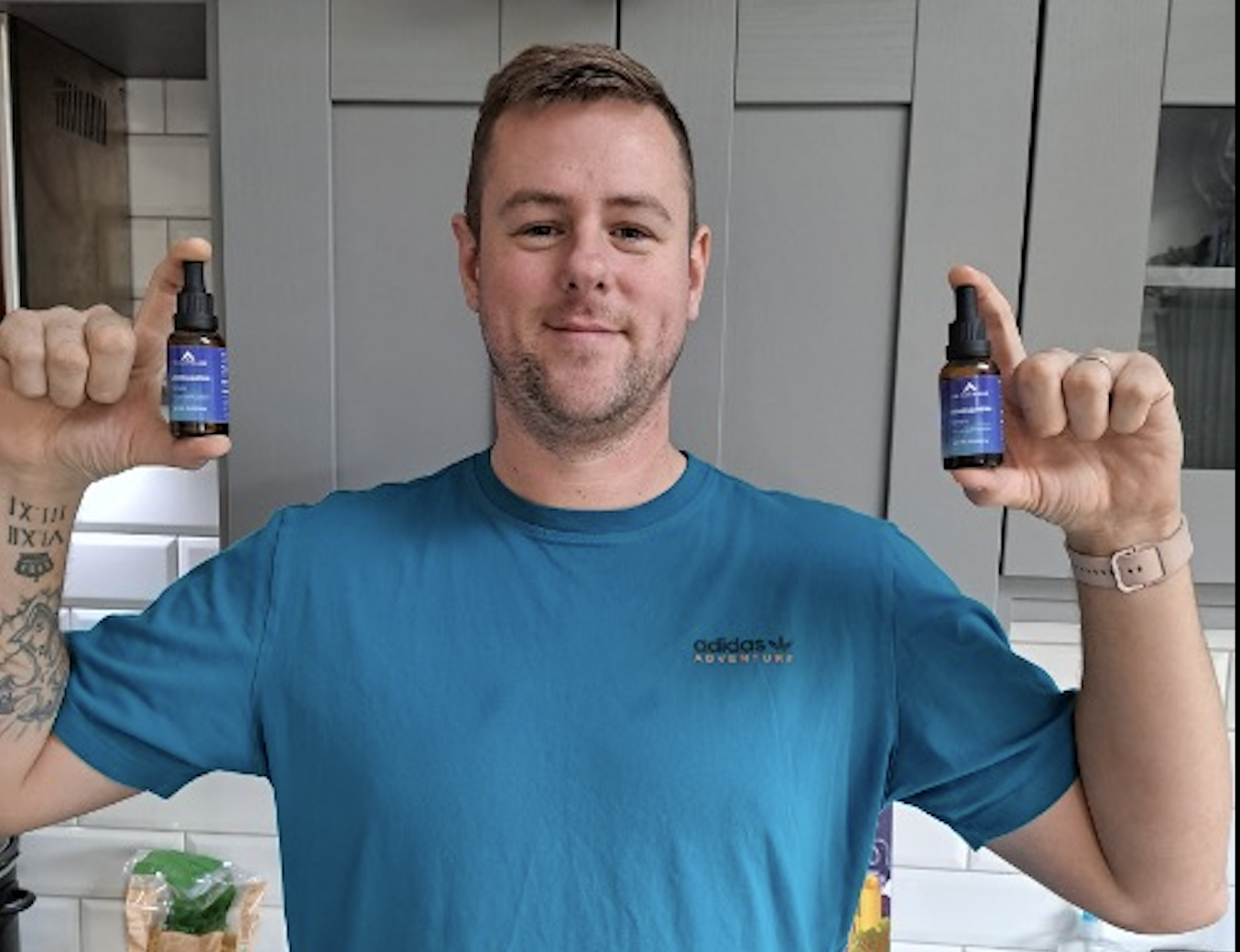For a number of years now many people have turned their attention to CBD use and the ways in which its consumption may be beneficial. Needless to say, CBD and its oil have been proven to be a great power-packed supplement for all those who use it to the best of their abilities [1].
CBD Oil contains many healthy and nutritious components that ensure that your usage of this oil or any of its products turns out to be a worthy one for you in the long run [2].
However, with any product comes its sets of pros and cons. The same applies to CBD Oil as well. In this case, it is the intoxication and addiction potential that can cause problems for vulnerable people in the long run.
So in this article, we shall discuss how CBD interacts with the body’s endocannabinoid system and whether or not a person may build up a tolerance for the substance when used over time.
CBD Oil’s Interaction With The Body
When CBD Oil gets introduced inside the body, it interacts with the Endocannabinoid System (ECS) of the body, which creates cannabinoids for the purpose of transmitting signals from the brain’s CB1 and CB2 receptors through both the nervous system and the immune system.
CB1 receptors are found in the brain and throughout the body, but CB2, while also found to occur in the brain, is seen to be more concentrated in the body’s immune and gastrointestinal systems. 1
Research has shown that when CBD interacts with these receptors, their capabilities are improved, thus improving the functionality of the receptors.
What Is Tolerance?
Tolerance can sometimes be mistakenly interpreted as being similar to addiction or dependence, the way a person might be addicted to tobacco or coffee.
Tolerance in the literal sense, however, occurs when larger and larger amounts of a substance are required in order to experience the effects that were initially felt when taking that substance in small amounts.
MORE READING: Could CBD Actually Be an Intoxicating Substance
Can Users Develop Tolerance For CBD Oil?
The short and straightforward answer is no. CBD tolerance is not something observed in common users of the substance. It is very different from other cannabinoids, like THC.
People regularly become tolerant of THC due to how it interacts with CB1 receptors in the brain. When THC binds to these receptors, it imitates endocannabinoids. This causes the Endocannabinoid System to sense potential overactivity, and so it down-regulates itself.
Because of this, fewer endocannabinoids and endocannabinoid receptors are produced, thus making a user more tolerant of the substance, in this case, THC. After, a user will require larger and larger amounts to reach the same effects and become over-dependent.
What Makes CBD Different?
CBD has a more indirect interaction with these receptors and binds to them differently. When the receptors encounter CBD, they do not become desensitized as they do with THC, and so users will not get to a point where their body requires more the longer it’s used.
Though research on CBD is still in relative infancy, what has been discovered so far seems very promising regarding whether a person will develop a tolerance for the substance if used over extended periods of time.
Unlike cannabis, where long-term users will develop a THC tolerance, the evidence for CBD seems to point in the opposite direction.
Studies and scientific research on CBD oil use suggest that a tolerance won’t be built and that if long-term use is carried out then the result may produce what is known as ‘Reverse Tolerance’.
What Is Reverse Tolerance?
‘Reverse Tolerance’ is the phenomenon whereby the more exposed a person is to a particular substance, the less they ultimately need to feel its effects. Therefore, as time goes on users of CBD oil will require smaller and smaller amounts to do what formerly demanded more.
How Is Reverse Tolerance Achieved?
There are over a hundred different phytocannabinoids found in cannabis, one of which is CBD.
Similar to endocannabinoids, both of these cannabinoids interact with the body’s endocannabinoid system. Because CBD indirectly triggers cannabinoid receptors in the ECS without binding to them, over time this will enlarge the number of endocannabinoids naturally produced by your body.
The higher the number of endocannabinoids, the less CBD oil is required to experience the benefits of a well-operating endocannabinoid system.
Despite these discoveries, much more thorough research is required on CBD and its ability to achieve ‘Reverse Tolerance’. Because of this, it’s recommended that a user of CBD oil discover for themself how best to reach this stage.
Regardless of the fact that CBD will not get you ‘high’, unlike substances high in THC content, users should begin their CBD use with a lower dosage to test out their tolerance levels. Over time the dosage should be incrementally increased.
If you begin to feel a flattening of the effects despite still increasing the dose, this might indicate that you’ve developed a certain tolerance for CBD. At this point, it’s recommended that the dose ought to be lowered.
The Best Way To Get Consistent CBD Results
Now that we know users are unlikely to develop a tolerance for CBD – and may even experience ‘reverse tolerance’ – how are they to extract maximum benefit from its use?
To best comprehend what effects CBD is having on your body, it’s recommended that users keep a detailed and daily record of their CBD use.
This will include the following ways to make the most of this product:
- How much CBD was consumed
- The time at which it was taken
- What the concentration of CBD was
- The effects (if any) it had on both the physical body and the mind
- The form in which the CBD was consumed in
CBD products are now available in an array of different forms(gummies, capsules, creams, oils, etc) so it is possible that different products may bring out different results. As such, users may have to spend some time tinkering with their dosage to find what arrangement is ideal for them.
Despite CBD oil being generally safe and suitable for consumption, it is always encouraged that people speak to their doctor first before using it.
References
- Meissner H, Cascella M. (2022) Cannabidiol (CBD). In: StatPearls [Internet]. Treasure Island (FL): StatPearls Publishing.
- VanDolah, Harrison J et al. (2019) “Clinicians’ Guide to Cannabidiol and Hemp Oils.” Mayo Clinic proceedings.
- Chaudhry, I A et al. (1998) “Characteristics of “reverse tolerance” to amphetamine-induced locomotor stimulation in mice.” Neuropharmacology
- Fu, Jingxin et al. “Improved Therapeutic Efficacy of CBD with Good Tolerance in the Treatment of Breast Cancer through Nanoencapsulation and in Combination with 20(S)-Protopanaxadiol (PPD).” Pharmaceutics
- Pietrzykowski, Andrzej Z, and Steven N Treistman. (2008) “The molecular basis of tolerance.” Alcohol research & health : the journal of the National Institute on Alcohol Abuse and Alcoholism
- Rapin, Lucile et al. (2021) “Cannabidiol use and effectiveness: real-world evidence from a Canadian medical cannabis clinic.” Journal of cannabis research
- Zou, Shenglong, and Ujendra Kumar. (2018) “Cannabinoid Receptors and the Endocannabinoid System: Signaling and Function in the Central Nervous System.” International journal of molecular sciences.











